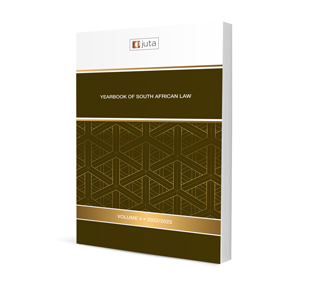Company and Close Corporation Law

Company and Close Corporation Law
Authors Richard Jooste
ISBN: 978 148515 163 0
Affiliations: BA BCom (Hons) LLB (UCT) Diploma in Comparative Legal Studies LLM (Cantab); Professor of Law (Emeritus), University of Cape Town; Attorney of the High Court of South Africa
Source: Yearbook of South African Law, Volume 4, p. 210 – 281